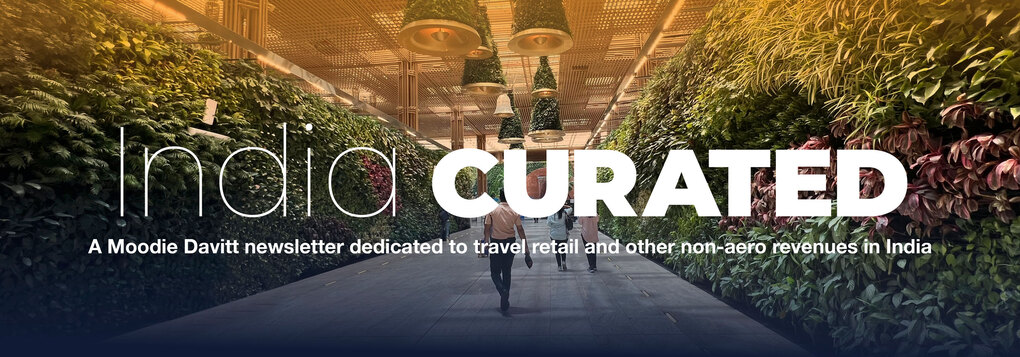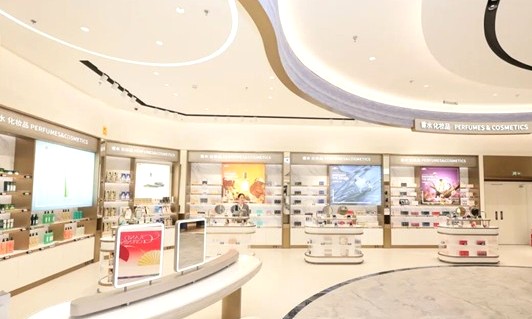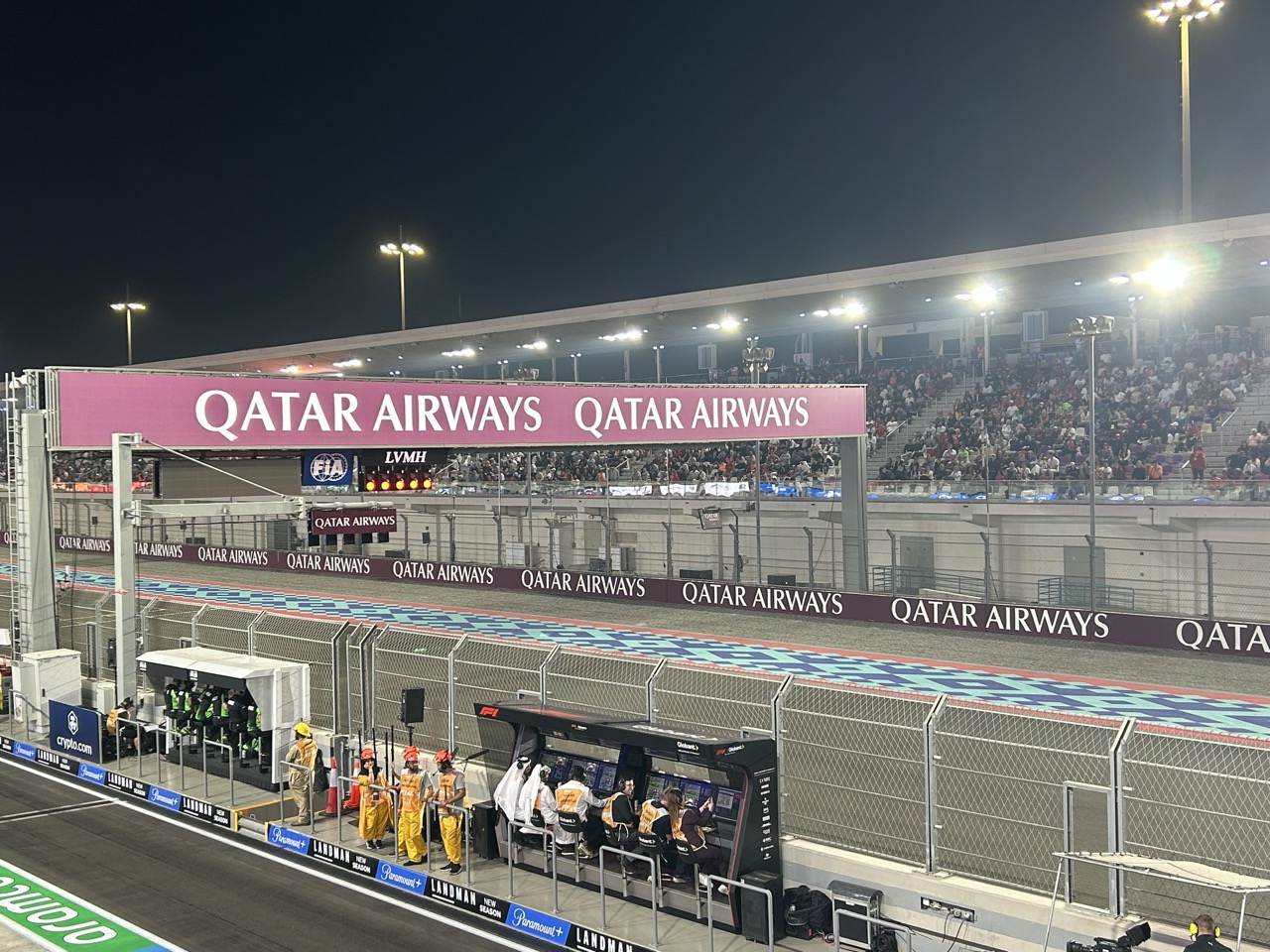It’s not every day you get to drive around a greenfield airport, especially one in the latter stage of its construction before a first phase opening in just a few weeks. But that’s what was on offer to guests of Adani Airport Holdings and Ospree Duty Free who attended the recent APTRA India conference in Mumbai. Martin Moodie was among them. This feature was first published in The Moodie Davitt Magazine May 2025 edition. Click here for access.
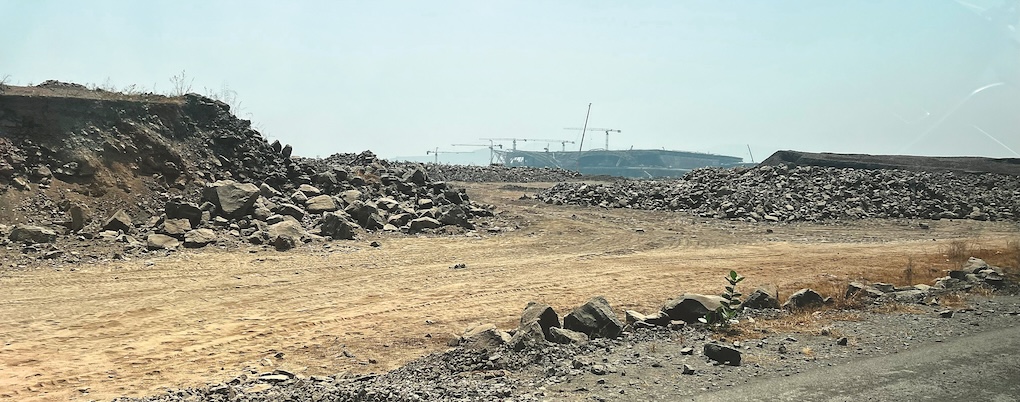
INDIA. It’s the sheer vastness of the site and the epic scale of the construction taking place within it that first strikes you. Under a blazing sun obscured only by the seemingly perennial haze of the Maharashtra smog, one of the great airports of the world is taking shape.
Everywhere there are workmen in fluorescent jackets and safety helmets, trucks, bulldozers, cranes, diggers and extraordinary amounts of rock. In just a few weeks this site – or a sizable chunk of it – will house a gleaming new facility known as Navi Mumbai International Airport (NMIA) Terminal 1, a 20 million capacity terminal (domestic and international) expected to be inaugurated in June and open to domestic passengers in Q3.
How a hugely ambitious airport project is coming to life
As final touches are put to the state of the art T1 – the first phase of an ultimate four-terminal passenger terminal facility that will be able to serve 90 million travellers annually – the scene could be out of a multi-million-dollar Bollywood adventure production. Here, though, the only drama is the race against time, one that airport operator Adani Airport Holdings is confident of winning.
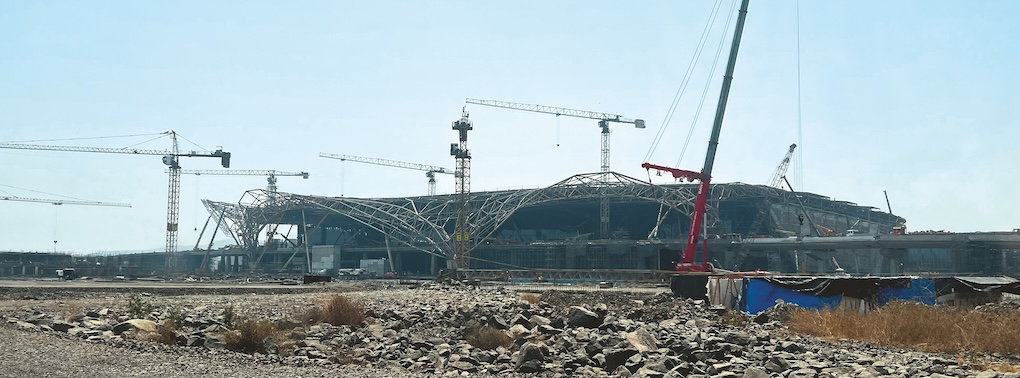
NMIA is a greenfield airport project situated in the heart of Navi Mumbai (a planned city created in the early 1970s, around 25km from Mumbai). Its terminal design, the work of Zaha Hadid Architects and described as “unmistakably Indian – futuristic, fluidic and modern”, is inspired by India’s national flower, the Lotus. In a few weeks the first iteration will be in full bloom.
Since The Moodie Davitt Report’s visit, the countdown has quickened. On 19 April regulatory authority the City and Industrial Development Corporation of Maharashtra (CIDCO) reviewed progress during a site visit. Chaired by CIDCO Vice Chairman and Managing Director Vijay Singh and attended by multiple stakeholders, including Adani Group Director, Airports Jeet Adani, the meeting confirmed that all airside work had been completed and procedures for securing regulatory approvals were also on track with no anticipated challenges.
The wait is nearly over and the excitement among the Adani management and team almost palpable. NMIA passengers can expect a commercial offer and other consumer attractions equally as compelling as the airport’s architecture, delegates to the APTRA India conference heard during their early April site visit.
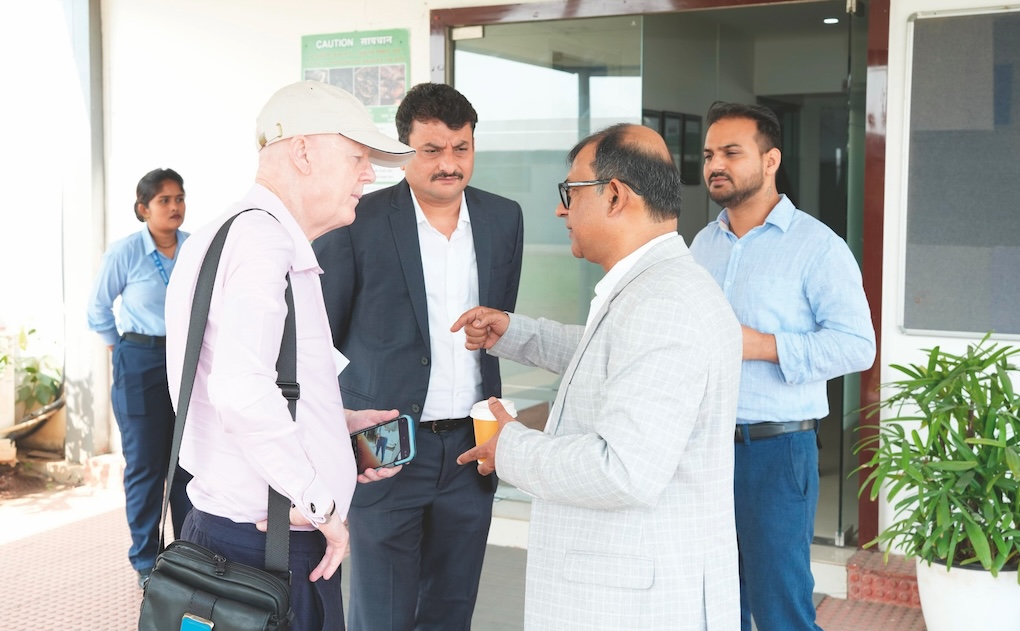
Two fascinating presentations from NMIA team left guests in awe about the ambition that underpins the project. And the enormity. The company has not only moved mountains metaphorically but actually removed one – well, a 90-metre hill, at least – literally. The massive landform had to be levelled to just eight metres to make way for a runway and the project’s core area; the tonne upon tonne of rock from the blasting used to raise the level of the land around the hill to the required level.
If demolishing a hill wasn’t a complex enough challenge, Adani Airport Holdings also had to divert a river, the Ulwe, to avoid flooding. The list of challenges overcome goes on. Some 2,500 families rehoused; ten trees planted for every one removed in construction; two runways built; and of course the construction of the airport terminals, one of which is undergoing its final touches.
But this is a group well-used to complex obstacles. Adani Airport Holdings Limited (AAHL) was incorporated in 2019 as a 100% subsidiary of Adani Enterprises, Adani Group’s flagship company.
In line with a vision to be the global leader in integrated infrastructure and transport logistics, the Adani Group took its plunge into the airports sector by emerging as the highest bidder for the operation, management and development of six gateways: Ahmedabad, Lucknow, Mangaluru, Jaipur, Guwahati and Thiruvananthapuram, and signing concession agreements with the Airport Authority of India for all six airports.
AAHL also holds 73% in Mumbai International Airport, which, in turn, has a 74% stake in NMIA. The group currently serves around 100 million passengers annually (with a 336 million master capacity) or 25% of Indian air traffic. On top of NMIA T1’s 20 million capacity, T2 (due to open in 2029) will be able to serve 30 million; and T3 (2032) another 20 million.
There’s no doubt that one of the airport world’s great commercial propositions lies in waiting. By the time of its completion NMIA will offer 45,992sq m of non-aero commercial space, 27,715sq m of it dedicated to retail (including Ospree Duty Free) and food & beverage across some 200 outlets with an impressive average 100sq m unit size.

We will tell that story in detail on our website in coming weeks as details are under wraps. But we can promise you the airport will be heavy on the experiential – not as opposed to the transactional but supporting it. Don’t expect any ‘cookie-cutter’ approach and be prepared to be surprised and amazed.
Adani Airport Holdings will be delighted when the airport opens in Q3. But it won’t be resting on its laurels. This month, it begins the designer onboarding for T2 with a design concept creation expected by August. The design scheme creation will follow next February, and a detailed design put in place by 2026.
It’s a breathless pace, and as with that inconvenient 90-metre hill, Adani Airport Holdings is certain to leave no stone unturned. ✈
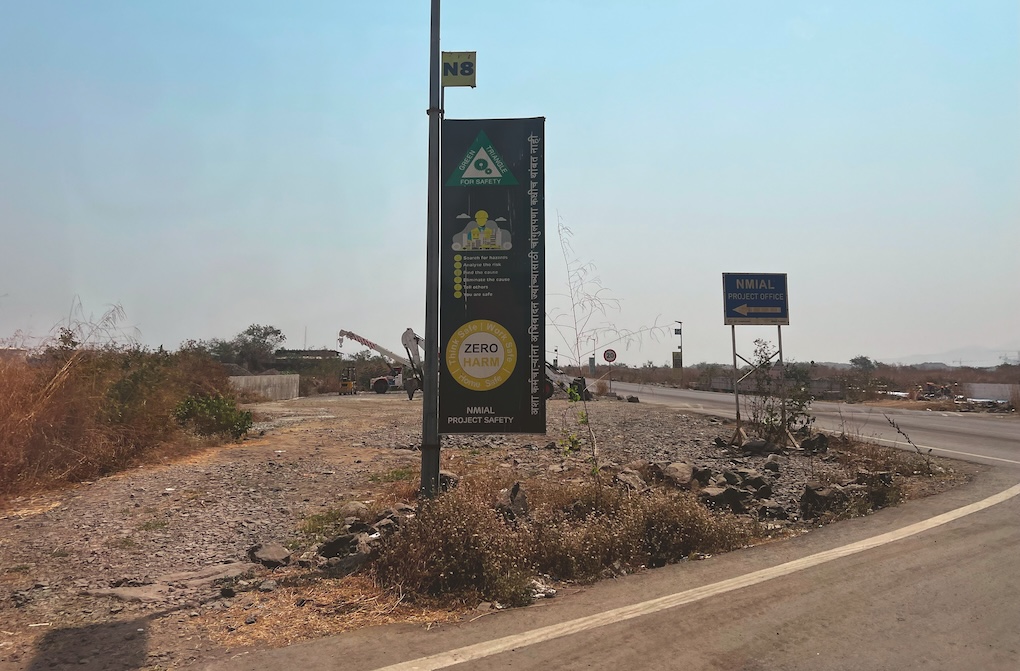
[Look out for our on-location report from Navi Mumbai International Airport when this spectacular new facility opens]

